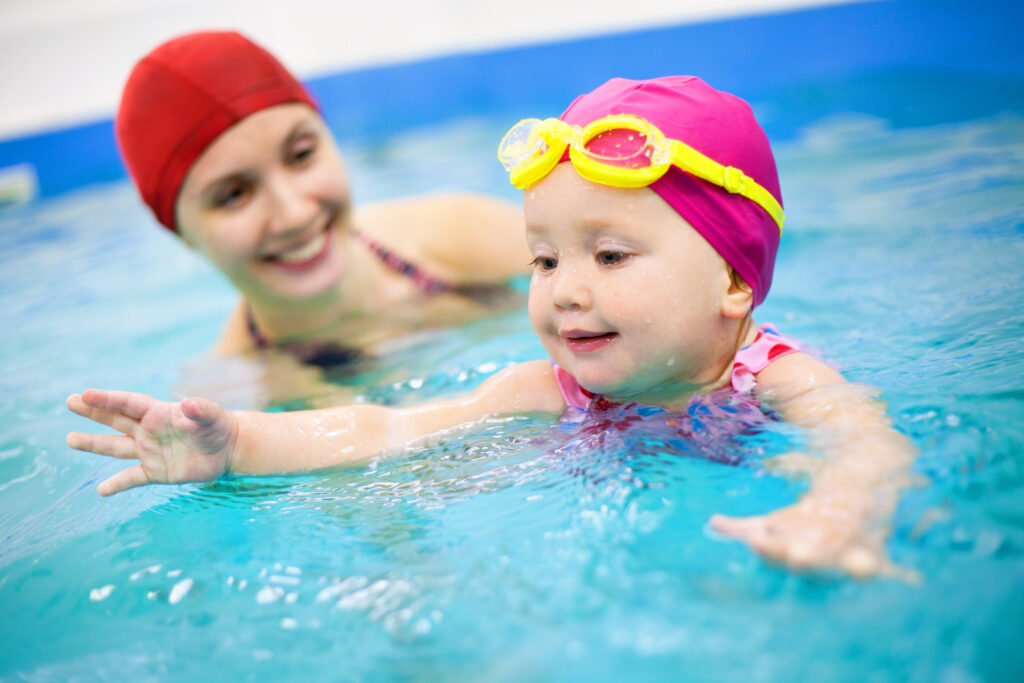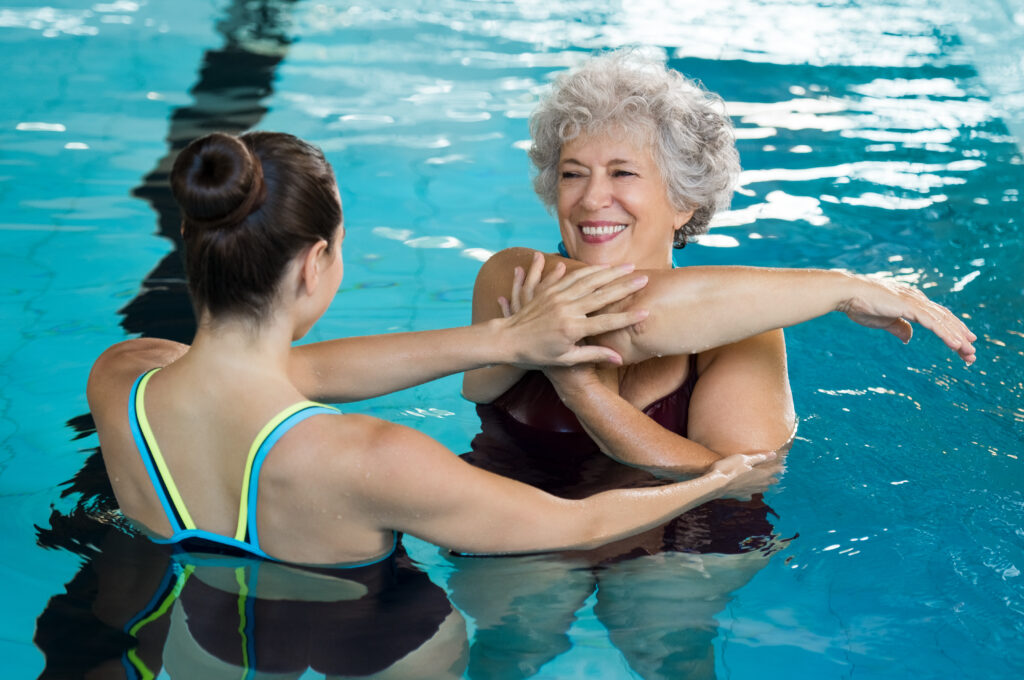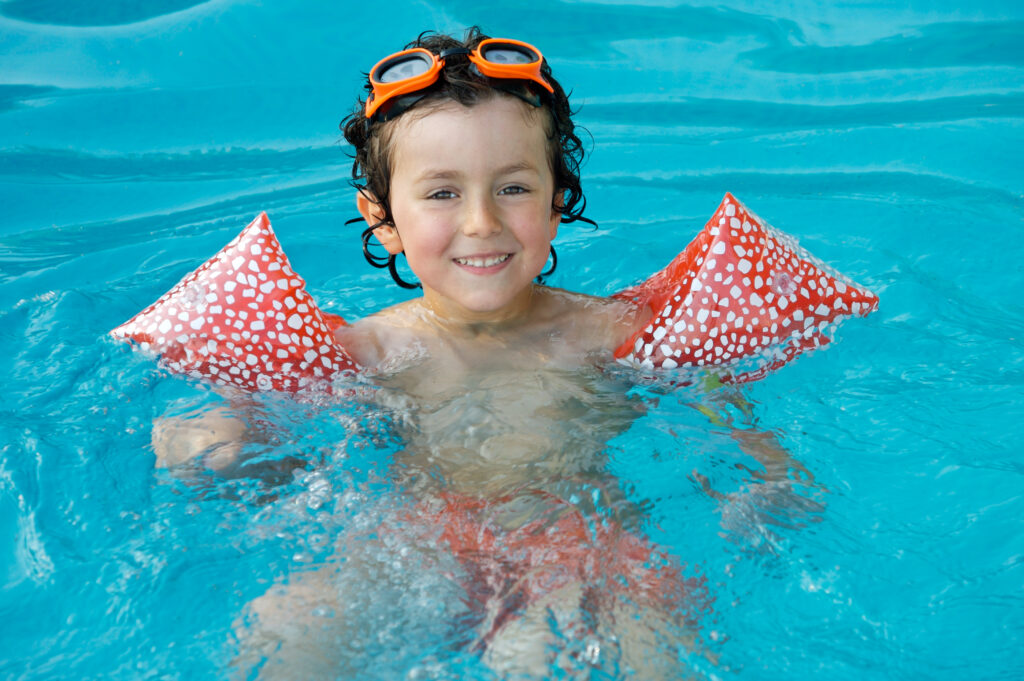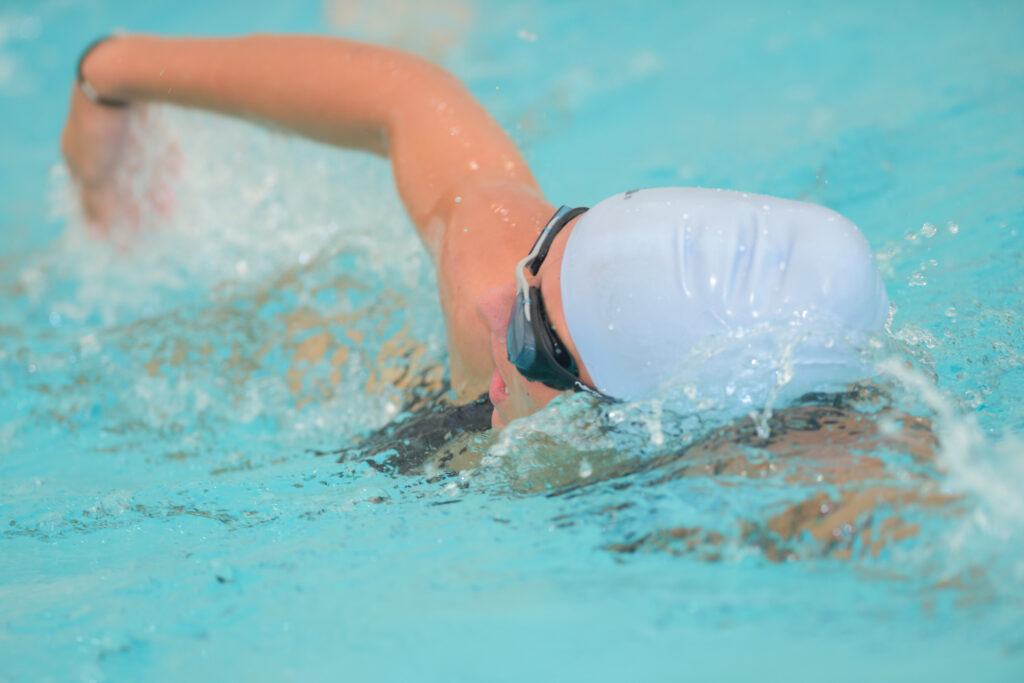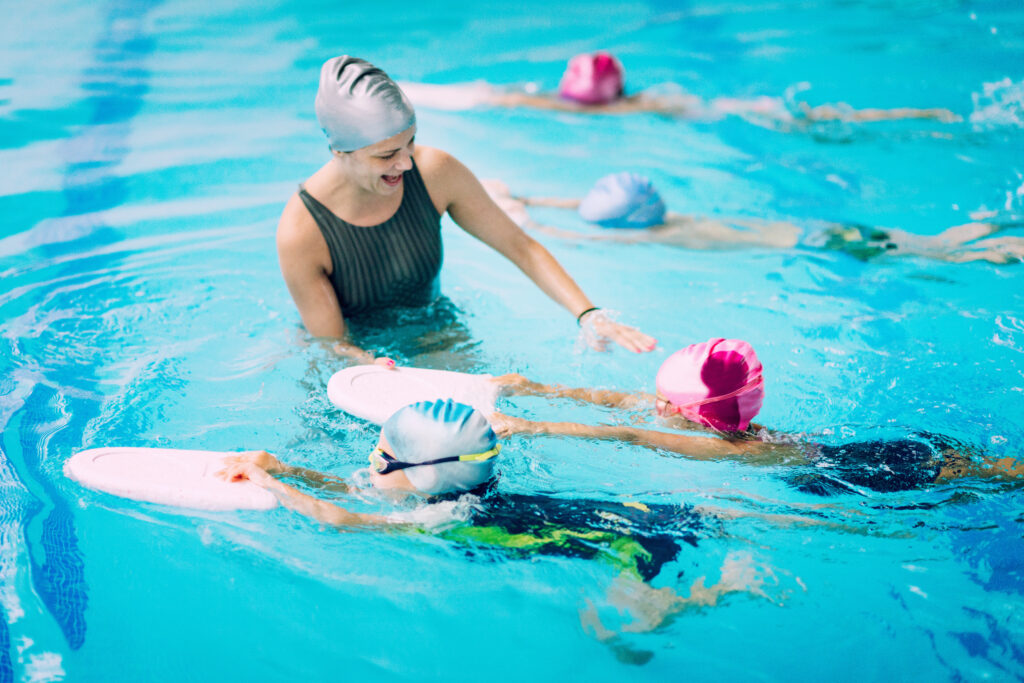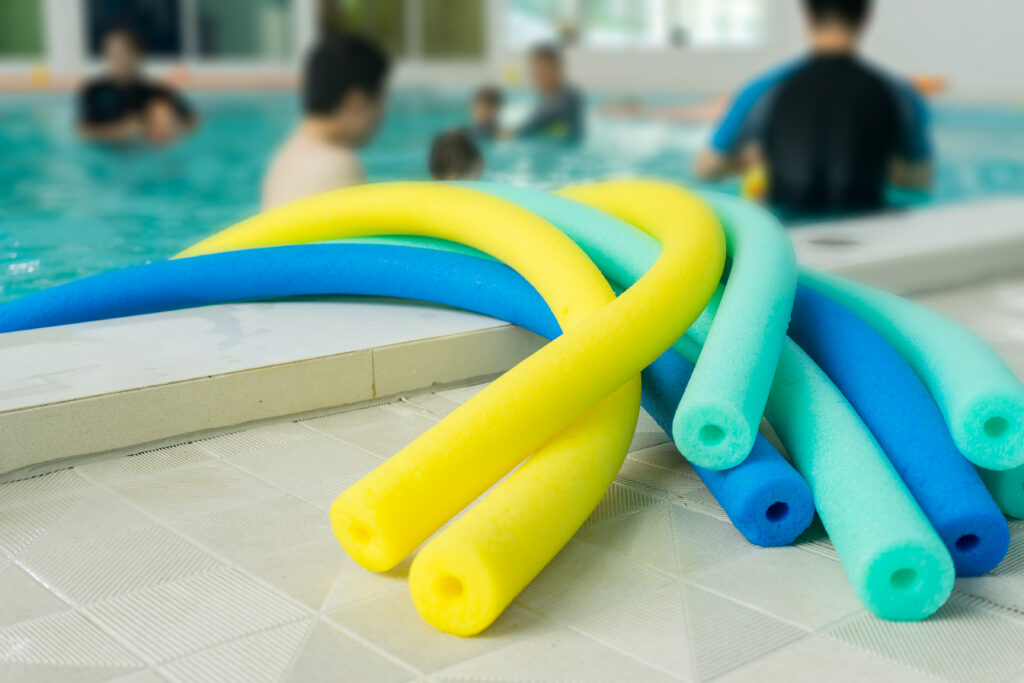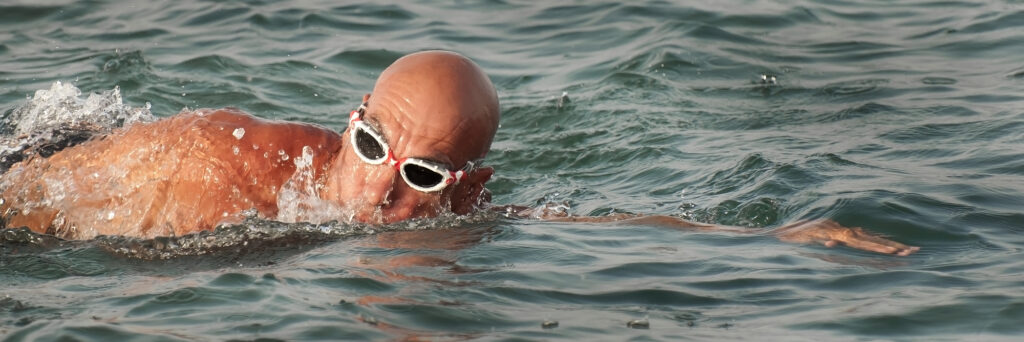Swimming is a skill that can be learned at any age, but when is the best age to start learning? This is a question that many parents ask themselves when considering enrolling their children in swimming lessons. While some parents may want to start their children as early as possible, others may prefer to wait until their children are older. In this article, we will explore the best age to start learning to swim and the factors that should be considered when making this decision.
Understanding child development is an important factor when deciding when to start swimming lessons. Children develop at different rates, and it is important to ensure that they are physically and psychologically ready to start swimming lessons. Physiological readiness for swimming involves the development of certain physical skills such as coordination, strength, and balance. Psychological readiness for swimming involves a child’s emotional and mental readiness to learn a new skill and be in the water.
Key Takeaways
- The best age to start learning to swim depends on a child’s physiological and psychological readiness.
- Factors to consider when making this decision include a child’s age, development, and personality.
- Early swimming lessons can have many benefits, including improved physical and mental health, safety, and confidence in the water.
Understanding Child Development
When it comes to learning to swim, it’s important to consider a child’s developmental stage. Children develop at different rates, but there are general guidelines that can help determine the best age to start swimming lessons.
Physical Development
Physical development is an important factor to consider when deciding if a child is ready to start swimming lessons. According to the Swim England Learn to Swim Framework, children should be able to perform certain physical tasks before starting lessons. These tasks include:
- Being able to walk unaided
- Being able to climb in and out of the pool unaided
- Being able to hold their breath for a short period of time
- Being able to float on their back with support
Cognitive Development
Cognitive development is another important factor to consider when deciding if a child is ready to start swimming lessons. Children need to be able to understand and follow instructions in order to learn to swim. They also need to be able to understand the importance of water safety. According to the BBC, children can start to learn about water safety from as young as six months old.
Emotional Development
Emotional development is also important to consider when deciding if a child is ready to start swimming lessons. Children need to feel comfortable and safe in the water in order to learn to swim. According to The Conversation, age four is a good time to start swimming lessons as children are more emotionally mature and able to handle the challenges of learning to swim.
Conclusion
In conclusion, physical, cognitive, and emotional development are all important factors to consider when deciding if a child is ready to start swimming lessons. While there is no one-size-fits-all answer to what age is best to start swimming lessons, it’s important to take into account each child’s unique developmental stage and abilities.
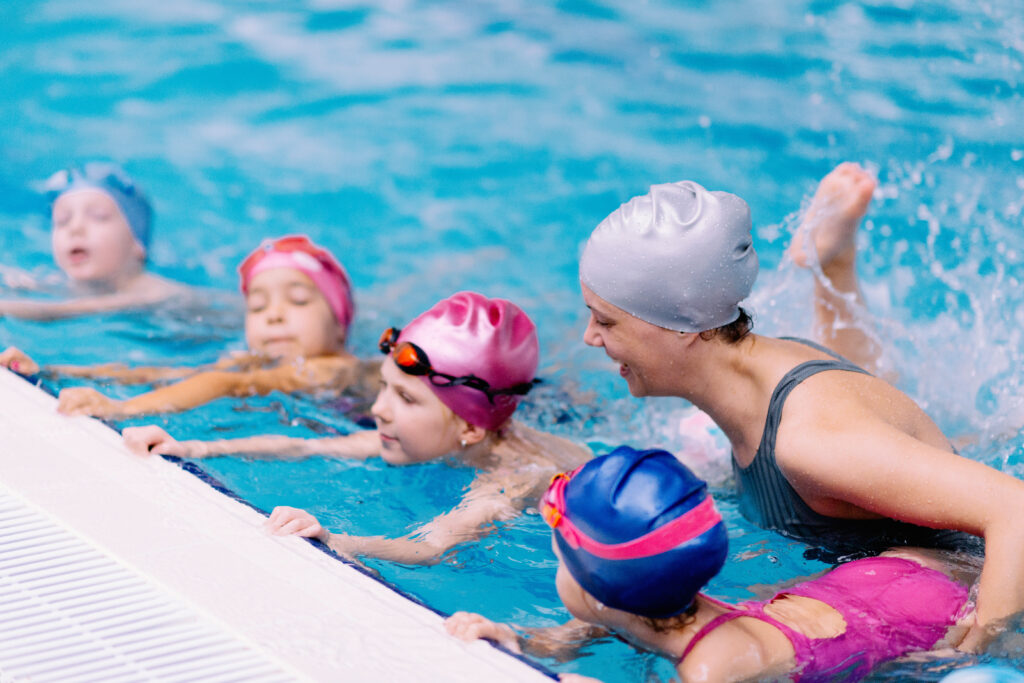
Physiological Readiness for Swimming
When it comes to determining the best age for a child to start learning to swim, their physiological readiness is an important factor to consider.
Physiologically, children develop at different rates, and this can affect their ability to learn to swim. According to Swim England, girls develop their movement skills between the ages of five and eight, while boys develop them between six and nine years old. This stage is crucial for children to “grow up,” and it’s essential to engage them in activities that help them develop their movement skills from an early age.
Additionally, children must also have the necessary physical attributes to swim. For example, they should have good muscle strength, coordination, and flexibility. They should also have a good sense of balance and be able to control their breathing.
Swimming is a physically demanding activity, and children who are not yet physically ready may struggle to learn the necessary skills. Starting swimming lessons too early can also be counterproductive, as children may become frustrated and disinterested if they are unable to keep up with their peers.
In summary, it’s important to consider a child’s physiological readiness before starting swimming lessons. While some children may be ready to start as early as four years old, others may need to wait until they are a bit older. Ultimately, it’s essential to take a child-centred approach and ensure that they are physically and emotionally ready to learn to swim before starting lessons.
Psychological Readiness for Swimming
When it comes to learning to swim, psychological readiness is just as important as physical readiness. Children who are not psychologically ready for swimming lessons may feel anxious, scared, or overwhelmed in the water. This can make it difficult for them to learn and progress.
So, what does psychological readiness for swimming look like? Here are a few things to consider:
Independence
Children who are psychologically ready for swimming lessons are typically able to separate from their parents or caregivers and take direction from an instructor. They are also able to follow basic safety rules and understand the importance of listening to their instructor.
Comfort in the Water
Children who are comfortable in the water are more likely to be psychologically ready for swimming lessons. This means they are not afraid to put their face in the water, can float on their back, and are generally relaxed in the water.
Willingness to Learn
Children who are psychologically ready for swimming lessons are typically willing and eager to learn. They are excited about the prospect of learning to swim and are motivated to improve their skills.
Emotional Maturity
Children who are emotionally mature are better equipped to handle the challenges that come with learning to swim. They are able to regulate their emotions, handle frustration and disappointment, and bounce back from setbacks.
In summary, psychological readiness for swimming involves a combination of independence, comfort in the water, willingness to learn, and emotional maturity. If your child exhibits these qualities, they are likely ready to start swimming lessons. However, if you have concerns about your child’s psychological readiness, it may be best to wait until they are more comfortable and confident in the water before starting lessons.
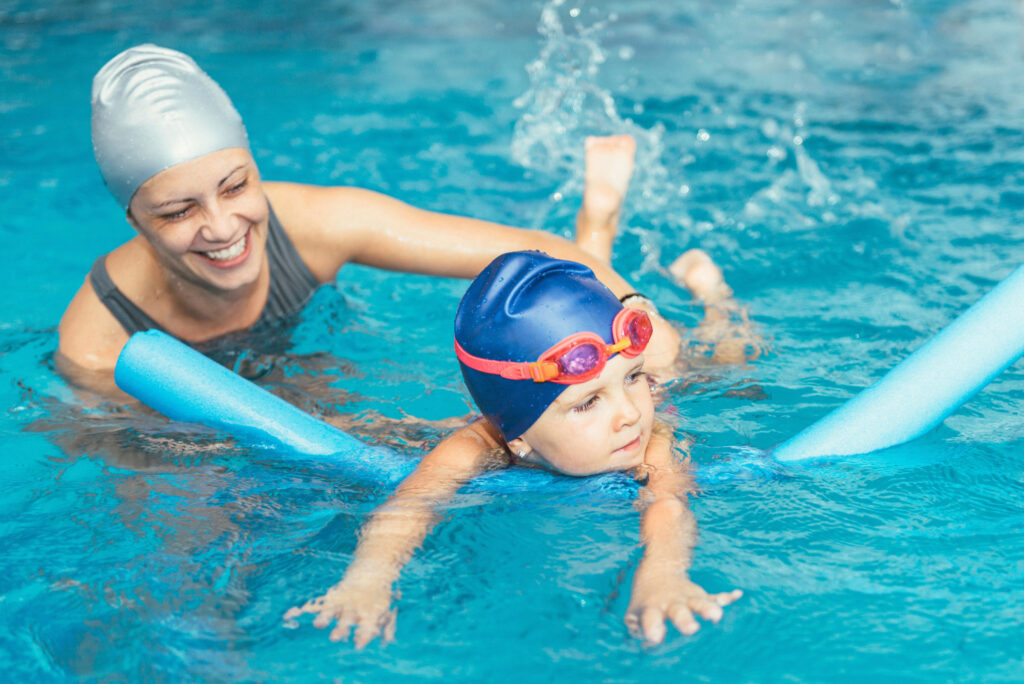
The Ideal Age to Start Swimming Lessons
When it comes to learning to swim, there is no one-size-fits-all answer to the question of the ideal age to start swimming lessons. However, research suggests that children who start swimming lessons at a young age tend to have an easier time learning to swim and are more likely to become confident swimmers.
According to a study done in Australia on a large group of children aged between two and eight, it was found that children who are five to six years old have the best level of readiness for learning the front crawl (with unilateral breathing). However, many learn-to-swim schools offer lessons for children as young as six months.
The American Academy of Pediatrics (AAP) recommends that children should start learning to swim around the age of one year. At this age, children can learn basic water safety skills such as blowing bubbles, floating, and kicking. By age 5 or 6, most children in swim lessons can master the front crawl.
Ultimately, the key is to start when your child is developmentally ready and comfortable in the water. Some children may be more outgoing and adventurous and may thrive in group lessons, while others who are shy or anxious may benefit from one-on-one lessons with a private instructor.
In conclusion, the ideal age to start swimming lessons varies from child to child. However, starting at a young age can help children become confident swimmers and develop important water safety skills. It is important to choose a swimming lesson program that is appropriate for your child’s developmental level and learning style.
Factors to Consider
When deciding on the best age to start learning to swim, there are several factors to consider. Here are some of the most important ones:
Physical Development
It’s important to consider a child’s physical development when deciding on the best age to start swimming lessons. Children need to have good head and neck control, as well as the strength to move their arms and legs in the water. Generally, children are ready to start swimming lessons around the age of four, but this can vary depending on the child’s physical development.
Water Confidence
Another important factor to consider is a child’s water confidence. Some children are naturally comfortable in the water, while others may be more hesitant. Starting swimming lessons at a young age can help to build water confidence, but it’s important to ensure that the child is not pushed too hard too soon.
Safety
Swimming is an important life skill, and it’s essential that children learn how to swim in order to stay safe around water. However, it’s important to ensure that children are always supervised when swimming, regardless of their age or swimming ability.
Learning Environment
The learning environment can also play a role in determining the best age to start swimming lessons. Some children may feel more comfortable learning in a group setting, while others may benefit from one-on-one instruction. It’s important to choose a learning environment that is appropriate for the child’s needs and preferences.
Cost and Availability
Finally, it’s important to consider the cost and availability of swimming lessons. While swimming lessons can be a valuable investment in a child’s safety and wellbeing, they can also be expensive. It’s important to shop around and find a program that fits within your budget. Additionally, it’s important to consider the availability of swimming lessons in your area, as some programs may have waiting lists or limited availability.
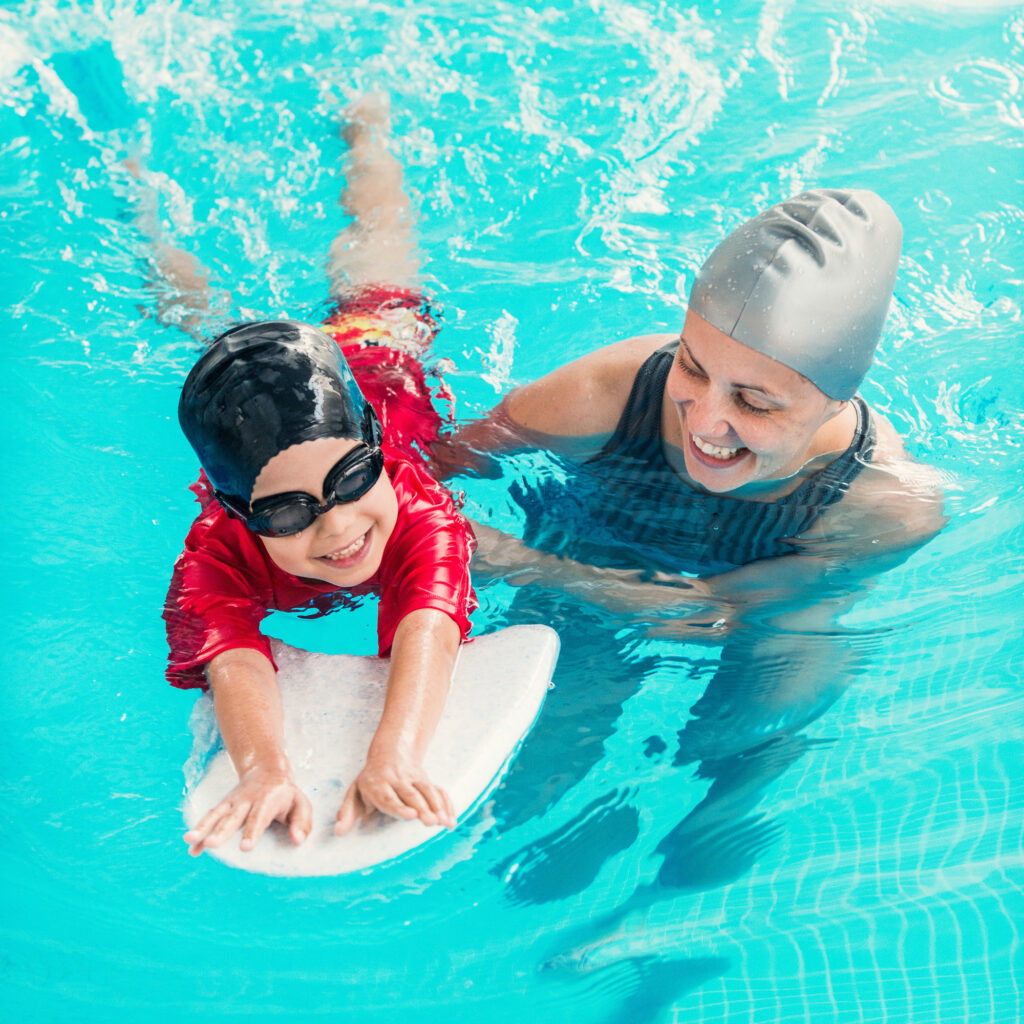
Benefits of Early Swimming
Swimming is a great activity for people of all ages, but starting early can provide numerous benefits for children.
Physical Development
Swimming is a low-impact exercise that can help children develop their gross motor skills, balance, and coordination. It can also improve their cardiovascular health and strengthen their muscles. In fact, according to Swim England, swimming can help keep a child’s heart and lungs healthy, improve their strength and flexibility, increase stamina, and even improve their balance and posture.
Cognitive Development
Swimming can also have a positive impact on a child’s cognitive development. According to a study mentioned in The Conversation, swimming in the early years can benefit physical, cognitive, and language skills among three to five-year-olds. It can also help improve a child’s memory, attention span, and ability to follow instructions.
Safety
Perhaps one of the most important benefits of early swimming is safety. According to Healthline, teaching a child to swim at a young age can reduce their risk of drowning. This is especially important if you live near water or plan on taking your child to the beach or pool regularly.
Social Development
Swimming lessons can also provide an opportunity for children to socialize and make new friends. It can help boost their confidence and self-esteem, and provide a sense of accomplishment when they learn a new skill or achieve a goal.
Overall, starting swimming lessons at a young age can provide numerous benefits for children’s physical, cognitive, and social development, as well as their safety.
Safety Precautions
When it comes to learning to swim, safety should always be a top priority. Here are some precautions to take when teaching your child to swim:
- Always supervise your child: No matter how experienced your child is, it’s important to always supervise them when they are in the water. Make sure they are within arm’s reach at all times, especially if they are young or weak swimmers.
- Choose the right environment: Make sure the swimming pool or body of water is safe and appropriate for your child’s swimming ability. Avoid swimming in areas with strong currents or dangerous underwater obstacles.
- Use appropriate safety gear: Make sure your child wears a properly fitting life jacket or floatation device when swimming in deep water. Goggles can also be helpful to protect their eyes and improve their visibility in the water.
- Teach your child about water safety: Make sure your child understands the importance of water safety and knows what to do in case of an emergency. Teach them basic swimming and survival skills, such as how to float on their back and call for help.
- Consider swimming lessons: Enrolling your child in swimming lessons can be a great way to ensure they learn proper swimming techniques and safety skills. Look for lessons that are appropriate for your child’s age and skill level.
By taking these precautions, you can help ensure that your child learns to swim safely and confidently.
Choosing the Right Swimming Programme
When it comes to choosing a swimming programme for your child, it is important to consider their age, ability, and personality. Here are some factors to consider when choosing a swimming programme:
1. Age
The age at which your child starts swimming lessons can have a big impact on their progress. According to Swim England, children can start learning to swim from as young as 6 months old. However, it is important to choose a programme that is age-appropriate and tailored to your child’s developmental stage.
2. Ability
It is important to choose a swimming programme that matches your child’s ability level. Some programmes may be geared towards beginners, while others may be more advanced. It is important to choose a programme that challenges your child without overwhelming them.
3. Personality
Your child’s personality can also play a role in choosing the right swimming programme. Children who are more outgoing and adventurous may thrive in group lessons, while children who are shy or anxious may benefit from one-on-one lessons with a private instructor.
4. Teaching Style
Different swimming programmes may have different teaching styles. Some programmes may be more structured, while others may be more relaxed and flexible. It is important to choose a programme that matches your child’s learning style and preferences.
5. Safety
Safety should always be a top priority when choosing a swimming programme. Make sure the programme follows proper safety protocols and has certified instructors who are trained in CPR and first aid.
By considering these factors, you can choose a swimming programme that is tailored to your child’s needs and helps them develop confidence and competence in the water.
Conclusion
After researching the best age to start swimming lessons, we have found that there is no one-size-fits-all answer. However, there are some general guidelines that parents can follow.
The American Academy of Pediatrics recommends that children should not start formal swimming lessons until after their fourth birthday. This is because children under four are not developmentally ready for swim lessons and may not retain the skills they learn.
Swim England suggests that children should start learning to swim at around four years old. The Learn to Swim Framework, which is designed for children aged four to eleven, focuses on developing fundamental movement skills and teaching children the four strokes of front crawl, backstroke, breaststroke and butterfly.
It is important to remember that every child is unique and will develop at their own pace. Some children may be ready to start swim lessons earlier than others, while some may need more time before they are ready to learn.
Parents should also consider their child’s comfort level in the water. If a child is afraid of the water, it may be best to wait until they are more comfortable before starting formal swim lessons.
Ultimately, the decision of when to start swimming lessons should be based on the child’s individual needs and abilities. By following these general guidelines and taking into account their child’s comfort level, parents can help ensure that their child has a positive and safe swimming experience.
Frequently Asked Questions
What is the ideal age to start swimming lessons?
The ideal age to start swimming lessons can vary depending on the child’s individual needs and abilities. However, many experts recommend starting lessons between the ages of 4 and 6. At this age, children have developed the necessary physical and cognitive skills to understand and follow instructions, as well as the ability to control their movements in the water.
When should I introduce my child to swimming?
You can introduce your child to swimming at any age, but it is important to ensure that the environment is safe and comfortable for them. For babies and toddlers, you can start by introducing them to the water in a shallow pool or bathtub, and gradually progress to more formal lessons as they get older.
What are the benefits of starting swimming lessons at a young age?
Starting swimming lessons at a young age can have many benefits, including improved physical fitness, increased confidence and self-esteem, and improved safety in and around water. Swimming can also help to develop important life skills such as discipline, goal-setting, and perseverance.
How long should a child take swimming lessons for?
The length of time a child should take swimming lessons for can vary depending on their individual needs and abilities. However, most experts recommend taking lessons for at least several months to a year to develop the necessary skills and confidence in the water.
What should I look for in a swimming instructor for my child?
When choosing a swimming instructor for your child, it is important to look for someone who is experienced, qualified, and able to work with children of your child’s age and ability level. You should also look for someone who is patient, encouraging, and able to create a safe and supportive learning environment.
Is it ever too late to learn how to swim?
It is never too late to learn how to swim. Whether you are a child or an adult, learning to swim can have many benefits for your physical fitness, safety, and overall wellbeing. Many swimming schools offer lessons for adults of all ages and abilities, so it is never too late to start learning.

